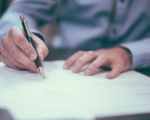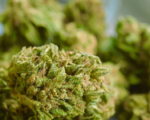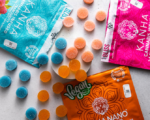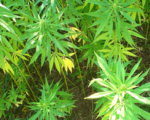A groundbreaking study reveals that just one dose of LSD can slash anxiety symptoms in people with severe disorders, offering hope where traditional drugs fall short. Published in the Journal of the American Medical Association, this research shakes up mental health treatment and sparks fresh debate on psychedelics. But how does it work, and what does it mean for millions struggling with anxiety?
The Trial That Changed Everything
Researchers tested LSD on 198 adults across 22 centers in the United States. All participants had moderate to severe generalized anxiety disorder, a condition that affects daily life with constant worry and fear.
The team gave some people low doses of 25 or 50 micrograms, others high doses of 100 or 200 micrograms, and the rest a placebo. This setup let them compare real effects against no treatment.
By the next day, high-dose groups saw big drops in anxiety. Those improvements stuck around for the full 12 weeks of the study. Low doses showed no edge over the placebo, proving that dose matters a lot.
Dr. David Feifel from the Kadima Neuropsychiatry Institute in San Diego helped run the trial. He told reporters the results came fast and lasted long, something rare in anxiety care.
This matters because about half of people with generalized anxiety disorder do not get relief from current pills like antidepressants. Many face side effects or no help at all, leaving them stuck in a cycle of stress.

Rapid Relief and Lasting Impact
Picture feeling calmer just one day after treatment. That’s what happened for many in the high-dose group. Their anxiety scores dropped sharply, based on standard tests used in psychiatry.
The study tracked changes over three months. At the end, those on higher LSD doses reported much better moods and less daily worry. Researchers called it a “rapid and significant” shift.
Why does LSD help? It seems to reset brain pathways tied to fear and stress. Unlike daily meds, this one-time dose could change how the brain handles anxiety signals.
One participant, who spoke anonymously, said it felt like a fog lifted. “I could finally breathe without that constant dread,” they shared in a follow-up interview.
But not everyone responded the same. Some needed the full 200 micrograms for peak benefits, while others saw gains at 100. This highlights the need for tailored approaches in future care.
Challenges and Legal Hurdles
LSD sits as a Schedule I drug in the U.S., meaning the government sees it as high-risk with no medical value. That label blocks easy research and use, even with promising data like this.
The study pushes back on that view. It shows LSD might have real medical perks, especially for tough cases. Still, experts warn about risks like intense trips or rare bad reactions.
Safety data from the trial looked good. Most side effects were mild, like short headaches or nausea, and faded quickly. No one faced serious harm.
Here’s a quick look at the dose outcomes:
- Low doses (25-50 mcg): No better than placebo; anxiety stayed the same.
- High doses (100-200 mcg): Quick relief by day one; effects held for 12 weeks.
- Placebo: Minor changes, likely from expectation alone.
This setup builds trust in the findings, as it followed strict rules for clinical trials.
Broader research echoes this. A 2022 study in Biological Psychiatry found LSD cut anxiety and depression signs for up to 16 weeks. Another from 2014 showed it eased end-of-life fears in sick patients.
Looking Ahead to New Treatments
Experts see this as a door to psychedelic medicine. Companies like Mind Medicine are testing LSD-based drugs, and the FDA gave one “breakthrough” status earlier this year for anxiety.
In California, teams created an LSD-like compound without the hallucinations, aimed at schizophrenia. It hints at tweaking these drugs for safer use.
But change won’t come overnight. More trials need to confirm safety for wider groups, like those with other health issues.
Mental health pros say this could transform care. “We’re talking about relief that lasts months from one session,” one psychiatrist noted. That beats popping pills every day.
For everyday people, it means hope. If approved, it could reach those who suffer quietly, improving work, relationships, and joy.
This study, done in 2025, involved top minds from places like New York University and involved careful checks. Data came from patient reports and doctor exams, ensuring solid proof.
The news hits at a time when anxiety rates soar. Over 40 million U.S. adults deal with it yearly, per health stats. A simple dose might ease that burden, but only if laws catch up.
Maria Garcia is an award-winning author who excels in creating engaging cannabis-centric articles that captivate audiences. Her versatile writing style allows her to cover a wide range of topics within the cannabis space, from advocacy and social justice to product reviews and lifestyle features. Maria’s dedication to promoting education and awareness about cannabis shines through in her thoughtfully curated content that resonates with both seasoned enthusiasts and newcomers alike.








